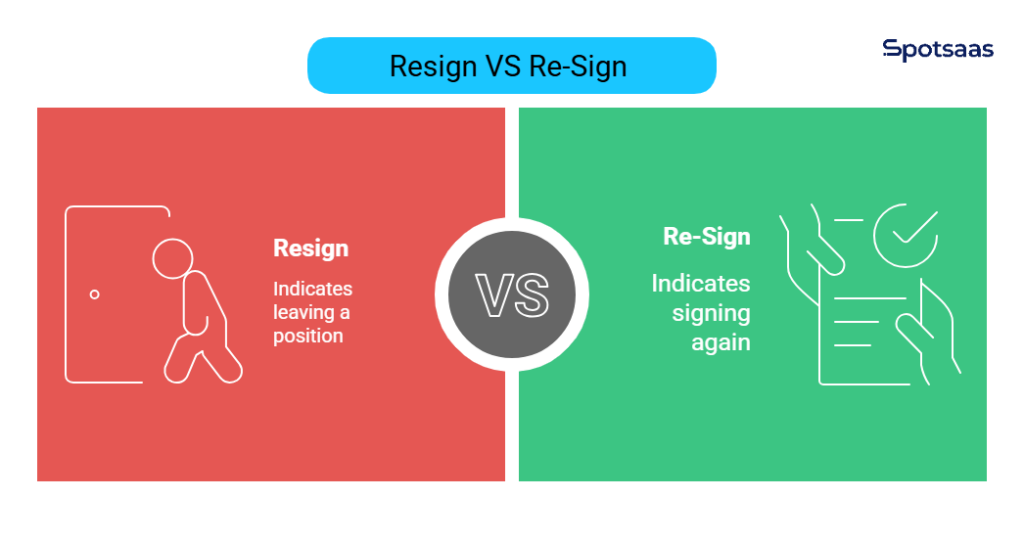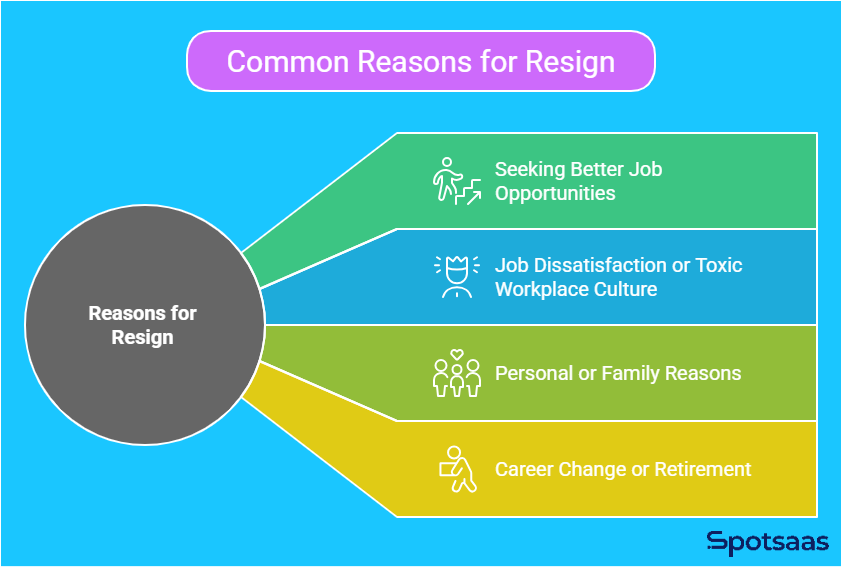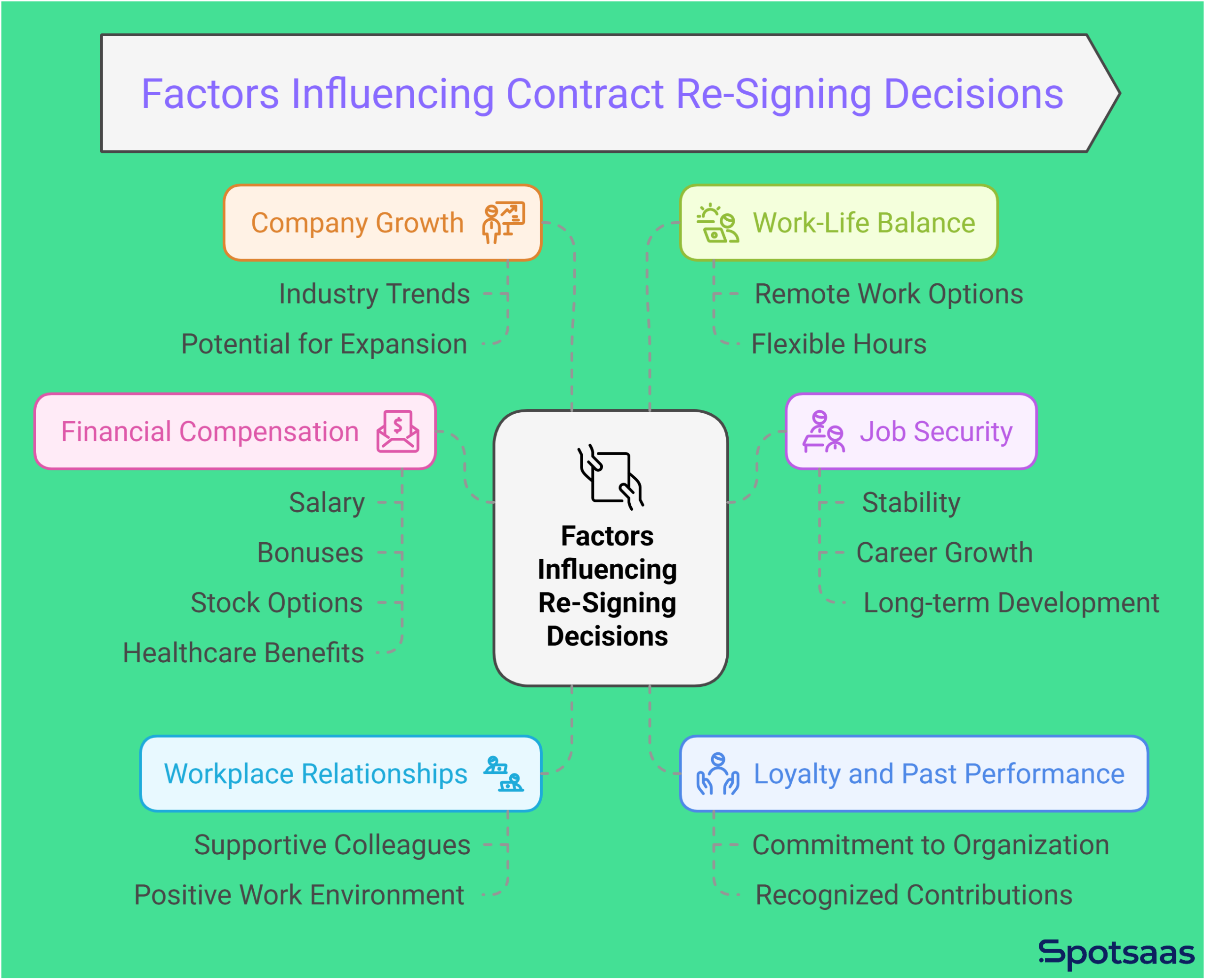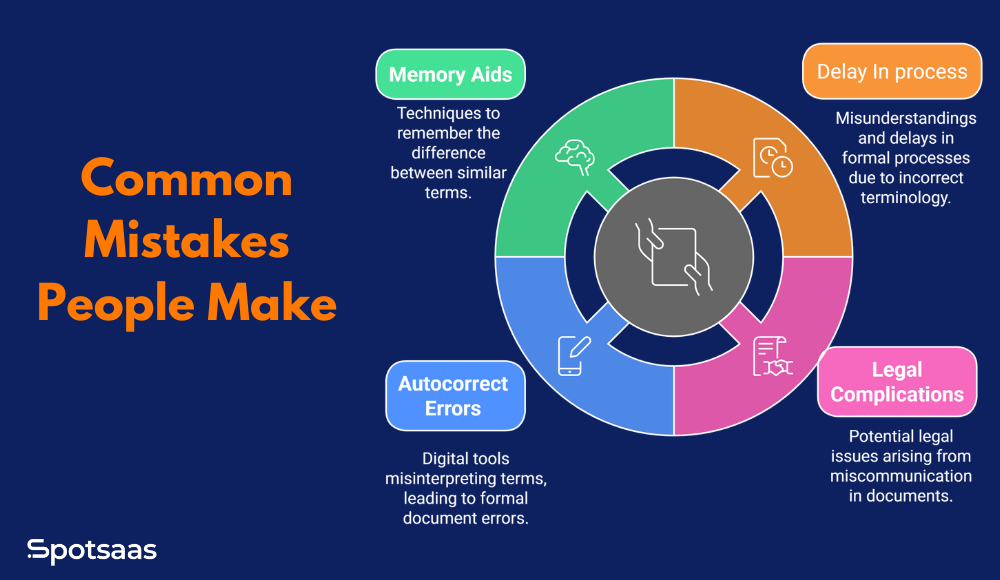When drafting work emails, it’s important to use resign and re-sign correctly to avoid confusion. Resign means to quit or step down from a position, while re-sign means to sign a contract again to continue in the same role.
A missing hyphen can completely change the meaning, leading to misunderstandings. To ensure clarity, always proofread emails and use the right term when announcing a resignation or renewing a contract.

Key Takeaways
- Resign means leaving a position, while re-sign means renewing a contract.
- Resigning can be a strategic move for better career opportunities.
- Re-signing often involves negotiating salary, benefits, or new terms.
- The hyphen in re-sign is crucial for maintaining the correct meaning.
- Understanding the difference prevents confusion in professional communication.
What Does Resign Mean?
Resign means voluntarily stepping down from a job, position, or commitment. It is common in corporate, government, sports, and leadership roles, typically requiring a formal resignation letter or employer notification.
While often linked to dissatisfaction can also be a positive step toward better opportunities, career growth, or personal change. Understanding the reasons behind resigning helps individuals make informed career decisions.
Examples
- I have decided to resign from my position to pursue other opportunities.
This statement is commonly used when an employee chooses to leave their current job for a new role that aligns better with their career aspirations, skills, or financial expectations. - After much consideration, the CEO announced her decision to resign at the end of the year.
In leadership roles, this often comes after strategic planning and thoughtful consideration, as executives must ensure a smooth transition and minimal disruption to the company.
Common Reasons
Resigning from a job can be driven by various factors, including career advancement, workplace dissatisfaction, personal obligations, or a desire for change. Understanding these reasons helps individuals make informed decisions about their professional future.

Seeking Better Job Opportunities
Many individuals resign when they find more promising career opportunities that offer a better salary, benefits, work-life balance, or professional growth. A resignation in this case is often seen as a career advancement rather than an escape.
- Example: A software engineer resigns from a mid-sized company to accept a higher-paying position at a top tech firm.
- Consideration: It’s important to evaluate long-term benefits, such as company culture, job stability, and career trajectory, rather than making a decision based solely on salary.
Job Dissatisfaction or Toxic Workplace Culture
Workplace dissatisfaction is one of the leading reasons employees. This may stem from poor management, lack of career development, excessive workload, or a hostile work environment.
Employees who feel unappreciated, overworked, or stressed often seek employment where they are valued and supported.
- Example: An employee resigns after experiencing constant micromanagement and a lack of appreciation for their contributions.
- Consideration: If dissatisfaction is the main factor, it’s often advisable to discuss concerns with HR or management before its happening, as some issues may be resolved through internal changes.
Personal or Family Reasons
Some employees do this due to personal obligations or unexpected life circumstances that make continuing in their current role difficult. These reasons may include health issues, caregiving responsibilities, relocation, or work-life balance concerns.
- Example: A working parent resigns to take care of a newborn child, or an employee moves to a different city due to a spouse’s job transfer.
- Consideration: Before, employees should explore alternative work arrangements, such as remote work, flexible hours, or a temporary leave of absence, if their employer allows it.
Career Change or Retirement
Some resignations occur when an individual decides to shift careers entirely or retire after many years of service. A career change often involves pursuing a different industry, starting a business, or returning to school to acquire new skills.
Retirement resignations usually happen when an employee has reached a point where they no longer wish to work and are financially prepared to step away.
- Example: A marketing executive resigns to become a full-time entrepreneur, or a long-serving professor resigns to enjoy retirement.
- Consideration: For those changing careers, it’s essential to have a transition plan that includes acquiring necessary skills, networking, and financial preparation. Those retiring should ensure they have financial security and a plan for post-retirement activities.
What Does Re-Sign Mean?
Re-sign means to sign a contract again, agreeing to continue a job, role, or professional relationship. This is common in employment contracts, professional sports, entertainment, and various business agreements.
Unlike resigning, which signifies leaving a position, re-signing is an active decision to stay, often involving negotiations on salary, benefits, job responsibilities, or contract duration.
Examples of Re-Sign in Use
- “The star player decided to re-sign with his team for another three years.”
This means the player agreed to stay with the team, possibly after negotiating improved salary, playing conditions, or contract incentives. Sports contracts are often structured to allow re-signing based on performance and team needs. - “After negotiating better terms, the manager chose to re-sign her contract with the company.”
This indicates that the manager was willing to continue in their role but only after securing a favorable deal, which might include a salary increase, a promotion, or better work conditions.
Factors That Influence Re-Signing
Re-signing a contract is a significant decision influenced by various factors, including financial incentives, job security, workplace relationships, and personal priorities. Understanding these factors helps professionals make informed career choices.

Salary and Benefits Negotiation
A major reason for re-signing is financial compensation. Employees and athletes assess whether a renewed contract offers competitive pay, performance bonuses, stock options, healthcare benefits, and other perks. Many professionals weigh these factors against external job offers before making a decision.
Example: A marketing director considers leaving but ultimately re-signs after receiving a performance-based salary increase and additional vacation days.
Job Security and Future Prospects
Re-signing is often influenced by the stability of the company or organization. If an employer provides long-term growth opportunities, job security, and career advancement potential, employees are more likely to renew their contracts.
Example: A software engineer contemplating multiple job offers re-signs with their company after being assured of a leadership position in the next project cycle.
Relationship with Employers or Team
A strong professional network and workplace relationships impact the decision to re-sign.
Employees or athletes often stay in their roles if they have supportive colleagues, inspiring leaders, or a team culture they enjoy, much like the sentiments expressed in many insightful business quotes, which highlight the value of connection and leadership in the workplace.
Example: A key football player re-signs not just for a higher salary but because of strong team chemistry and a trusted coach.
Loyalty and Past Performance
Long-term employees and athletes develop a sense of loyalty toward their company or team, especially if they have been valued contributors. If their past performance has been recognized, they may be more inclined to stay. Employers also offer contract renewals based on an individual’s track record.
Example: A senior research scientist re-signs with the same pharmaceutical company after a decade of successful drug developments, receiving a retention bonus as a reward for their contributions.
Company Growth and Market Conditions
External factors, such as industry trends, company financial stability, and market conditions, play a role in re-signing decisions. If a company is growing rapidly and offers long-term stability, professionals might feel more secure in staying rather than taking risks with new opportunities.
Example: A financial analyst re-signs after seeing the company’s recent expansion, realizing it could lead to bigger roles in the near future.
Work-Life Balance and Flexibility
Many professionals weigh work-life balance when deciding whether to re-sign. If an employer offers flexible working hours, remote work options, or improved benefits for mental well-being, employees are more likely to continue.
Example: A high-level consultant who considered leaving due to work stress re-signs after the company implements a four-day workweek policy.
Re-signing is a critical career decision that requires evaluating multiple factors, from financial incentives to workplace satisfaction. Understanding the reasons behind re-signing can help professionals make informed choices that align with their long-term career and personal aspirations.
Key Differences Between Resign and Re-Sign
While “resign” and re-sign look nearly identical, their meanings are completely different. The key difference lies in their definitions:
- “Resign” means to voluntarily leave a job, position, or commitment. It is a formal decision to step down, often requiring a letter.
- “Re-sign” means to sign a contract again to continue in the same job, position, or commitment. It is typically associated with contract renewals in employment, sports, and other professional fields.
A missing or misplaced hyphen completely changes the meaning, making it crucial to use these words correctly in professional communication. Misusing them in emails, contracts, or conversations can lead to confusion, legal misunderstandings.
Pronunciation Difference
- Resign is pronounced as “Reh-zine” (with a silent “g”).
- Re-sign is pronounced as “Ree-sign” (with both syllables clearly enunciated).
Common Contexts of Usage
- Resign is used when leaving a job, organization, or position permanently.
- Re-sign is used when renewing an agreement, such as a work contract, sports deal, or business arrangement.
The table outlines the key differences between resign and re-sign. A hyphen changes the meaning, making correct usage crucial in professional communication.
| Feature | Resign | Re-Sign |
|---|---|---|
| Meaning | To quit or step down from a position | To sign a contract again and continue a role |
| Hyphen Usage | No hyphen, written as one word | Includes a hyphen, written as two parts |
| Pronunciation | “Reh-zine” (silent “g”) | “Ree-sign” (both syllables clear) |
| Context | Leaving a job, quitting, retiring | Renewing a contract, extending employment |
| Examples | “She resigned from her position.” | “He re-signed his contract with the company.” |
| Implication | Permanent departure | Continuation in the same role with new terms |
| Usage in Work Emails | “I am resigning from my role effective next month.” | “I have re-signed my contract for another year.” |
| Common in | Corporate jobs, government, sports teams, leadership positions | Employment contracts, sports agreements, business partnerships |
Common Mistakes People Make
Many people mistakenly interchange two, leading to confusion in professional communication. These mistakes are particularly common in emails, contracts, and verbal conversations, where a small error can completely change the meaning of a sentence.
Being aware of these pitfalls can help prevent misunderstandings and ensure clarity.

Misuse in Emails and Work Communication
One of the most frequent mistakes occurs in workplace communication, where using the wrong term can create unintended consequences. Without the hyphen, re-sign can mistakenly be interpreted as resign, leading to confusion about whether someone is leaving a job or renewing their contract.
In professional settings, such as employment agreements or resignation letters, this can cause delays, misinterpretations, or even legal complications.
How to Avoid This Mistake
Misusing resign and re-sign can cause workplace confusion, especially in emails, contracts, and legal documents. A missing hyphen may change the meaning entirely, leading to unintended consequences.
- Double-check resignation letters to ensure is used correctly when stepping down from a role.
- For contract renewals, confirm that re-sign has a hyphen to indicate an extension rather than quitting.
- Read the sentence aloud—if it sounds like ree-sign, the hyphen should be included for clarity.
- Don’t rely solely on spell-check tools, as they may incorrectly autocorrect re-sign to resign. Manual proofreading is essential.
- Consider the context carefully—use resign for leaving a job and re-sign for renewing a contract.
By applying these steps, you can avoid errors that may cause workplace or legal complications.
Autocorrect and Spell Check Errors
Many digital writing tools and spell-check software do not always differentiate between “resign” and “re-sign.” Since “resign” is more commonly used in everyday language, some spell-check programs automatically correct “re-sign” to “resign” without alerting the user.
This can lead to unintended mistakes in important documents or emails.
How to Avoid This Mistake
- Proofread manually before sending any emails or documents, especially when discussing resignations or contract extensions.
- Turn off autocorrect for professional documents to prevent automatic corrections that could alter the meaning of your message.
- Use grammar-checking tools like Grammarly or Microsoft Editor to detect word usage errors.
Memory Aids to Avoid Confusion
A simple way to distinguish between “resign” and “re-sign” is to use memory aids that link each word to its correct meaning.
Thinking of “resign” as a way to remove oneself from a position and “re-sign” as signing a document again can help in recalling the correct usage.
How to Avoid This Mistake:
- Associate “resign” with departure and “re-sign” with continuity to remember their differences.
- Keep the hyphen in “re-sign” as a reminder that it signifies renewing an agreement rather than quitting a position.
- Practice usage in sentences to reinforce the correct meaning in different workplace scenarios.
By consistently applying these distinctions and carefully reviewing written communication, you can avoid errors and ensure clarity in professional conversations.
How to Use Resign and Re-Sign in Work Emails
Using resign and re-sign correctly in professional emails is crucial to prevent misunderstandings.
A missing hyphen can change the entire meaning of your message, leading to unintended consequences. To ensure clarity and professionalism, follow these guidelines:
- When announcing resignation, clearly state: I am resigning from my position. This avoids any confusion about whether you are quitting or renewing your contract.
- When renewing a contract, specify: I am re-signing my agreement with revised terms. This makes it clear that you are continuing your role under new conditions.
- Proofread emails carefully before sending to prevent errors, especially in formal communications with HR, managers, or colleagues. If unsure, reading the sentence aloud can help determine if the correct term is being used.
Taking these steps ensures that your emails are precise, reducing the risk of miscommunication in workplace correspondence.
Grammar Tips
- Resign is always one word and never has a hyphen. It means to quit or step down from a position.
- Re-sign always has a hyphen and is used when signing again to renew a contract or agreement.
- The difference is subtle but significant, as a missing hyphen can completely change the meaning of a sentence.
Understanding these distinctions ensures clear and professional communication, especially in work-related correspondence.
Conclusion
Understanding the distinction between resign and re-sign is key to avoiding miscommunication. Resign means to step down from a role, while re-sign refers to extending a contract. A misplaced hyphen can change the meaning entirely, leading to misunderstandings.
To ensure clarity, always proofread important emails, double-check the context, and use simple memory tricks. Whether you are resigning or re-signing, choosing the right term prevents errors and ensures your message is understood correctly.
Frequently Asked Questions
Can resign and re-sign be used interchangeably?
No, they have opposite meanings. Resign means to leave a job or position, while re-sign means to renew a contract or agreement.
How can I easily remember the difference between resign and re-sign?
A simple trick is to remember that resign means removing yourself from a position, while re-sign means renewing your signature on a contract. The hyphen in re-sign serves as a visual cue for continuity.
What is the correct way to write a resignation email?
When writing a resignation email, clearly state: I am resigning from my position effective 2025. Avoid using re-sign, as it implies staying in the role.
How does pronunciation help differentiate between resign and re-sign?
Resign is pronounced as reh-zine, with a silent “g.”
Re-sign is pronounced as ree-sign, with both syllables clearly enunciated.
Can someone re-sign after resigning from a job?
Yes, if an employee resigns, they may later re-sign with the same company if they are offered a new contract or return under different terms.


